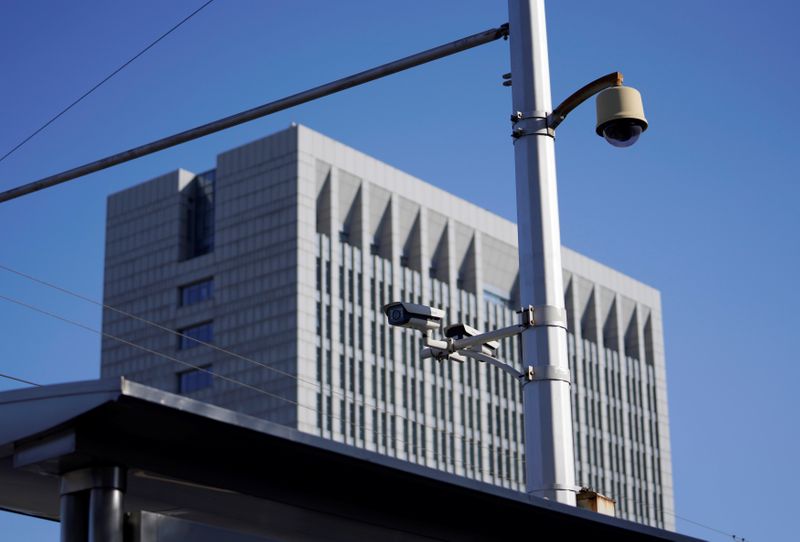BEIJING (Reuters) -China's ruling Community Party turned its sights on the country's vast financial sector this month, kicking off a new round of a years-long campaign to uncover corruption and illegal dealings.
The country's top anti-graft watchdog has started a roughly two-month inspection of more than 20 institutions including the central bank, the banking and insurance regulator, stock exchanges, commercial banks and asset-management companies, in its first coordinated inspection of the sector since 2015.
Chinese President Xi Jinping is scrutinising the ties that state banks and other financial institutions have developed with big private companies, the Wall Street Journal reported on Monday, citing people with knowledge of the plan.
The inspections are a comprehensive "political examination" of Party committees at the financial institutions and regulators, according to statements issued by the Central Commission for Discipline Inspection (CCDI) on Tuesday.
CCDI inspectors will be looking for any violation of political discipline - a Party euphemism for corruption.
The inspections follow a call by China's top anti-graft official, Zhao Leji, in late September for in-depth inspections at the Party organisations of 25 state financial institutions and regulators.
Since late 2020, Beijing has been advocating "the prevention of disorderly expansion of capital", kicking off a clampdown on tech giants and private education firms.
The campaign has been focused on preventing "savage growth" of some platform companies in a bid to deal with their monopolistic and unfair competition behaviours.
"The latest central inspection ... is certainly going to emphasize Xi's call of preventing the disorderly expansion of capital," said Feng Chucheng, partner of Plenum, an independent research firm.
"The Party leaders likely realized that they need a more comprehensive, top-down approach in managing systematic financial risks following the series of events since last year, including Ant IPO, Didi IPO, and the latest of property market," Feng said.
When the sector was last inspected in 2015, at least a few hundred bankers and executives were censured and even fired. Offences included organising prohibited internal banquets and accepting holidays from clients.
In 2017, Xiang Junbo, the former chair of China's insurance regulator, was removed from his post after a probe of one of the most senior financial regulators in years. Xiang was sentenced to 11 years in jail in 2020.
In January this year, China executed Lai Xiaomin, the former head of the embattled China Huarong Asset Management Co, after he was found guilty of taking 1.79 billion yuan of bribes.

On Monday, the CCDI said the former chairman and Party head at Chang'an Bank, based in the northwestern province of Shaanxi, had been expelled from the Party and public office due to corruption.
In recent months, Chinese regulators have also taken aim at sectors ranging from technology to education and property, targeting some of the biggest firms in the country like Alibaba (NYSE:BABA) Group and Tencent Holdings (OTC:TCEHY).